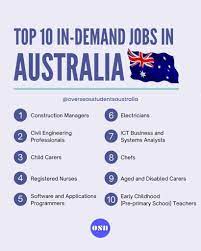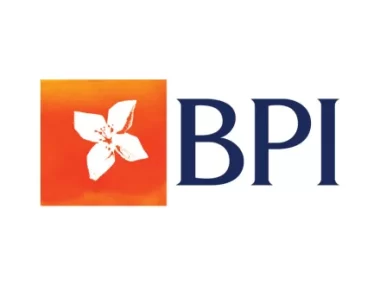In today’s dynamic job market, the role of a Benefits Representative holds immense significance. From core responsibilities to career growth opportunities, this article explores deep into the multifaceted aspects of this profession.
Benefits Representative Job Description
The Benefits Representative is responsible for administering and managing employee benefits programs within the organization. They will ensure compliance with relevant laws and regulations, communicate benefits information to employees, and provide assistance in navigating and understanding their benefits options. This role requires strong interpersonal skills, attention to detail, and a deep understanding of employee benefits.
Some other primary responsibilities of a benefits representative include:
-
Developing and maintaining important company wellness programs and initiatives
-
Holding important meetings to discuss company benefits
-
Conducting benefit surveys among company individuals
-
Resolving issues or challenges relating to an employee’s coverage
-
Assisting in new hire orientations
Requirements and Qualifications
- Bachelor’s degree in Human Resources, Business Administration, or a related field
- Proven experience in benefits administration or a similar role, preferably within a corporate setting
- In-depth knowledge of employee benefits laws, regulations, and compliance requirements
- Excellent communication and interpersonal skills, with the ability to effectively convey complex information to a diverse audience
- Strong analytical and problem-solving abilities, with a keen attention to detail
- Proficiency in using HRIS and benefits administration software
- Ability to maintain confidentiality and handle sensitive information with discretion
- Customer-focused mindset and a dedication to providing exceptional service to employees
- Team player with the ability to work collaboratively and independently in a fast-paced environment
- Professional certifications related to benefits administration (e.g., CEBS, PHR, or SPHR) is a plus
Benefits representative skills
Here are some of the most pertinent skills that benefit representatives use:
-
Organization: Benefit representatives often have to handle multiple benefit packages and programs throughout the duration of their work. This can often require powerful skills in organization that can help them develop systems to resolve any issues or questions quickly and efficiently.
-
Attention to detail: Attention to detail is important for a benefits representative because it can allow them to find the most suitable and cost-effective plans for employees. Understanding what to look for within a benefits package and being able to understand its legal information is incredibly helpful for picking the plans that are most beneficial to individuals.
-
Communication: Benefit representatives often have to present their chosen packages or plans to company managers for approval, as well as different employees and individuals who will receive the benefits. Possessing sound skills of verbal and written communication can be crucial to help them relay all the important information about the chosen packages.
-
Problem solving: Sometimes during a benefits representative’s work, they might have to help an employee solve challenges related to their benefits package. When this occurs, it’s can be very helpful for benefit representatives to possess problem-solving capabilities to find the best solutions for any issues or concerns.
-
Research and analysis: When finding the most cost-effective and beneficial packages for employees, it’s important for benefit representatives to have powerful skills in research and analysis to search for great coverage plans and compare them with others they’ve found.
How to become a benefits representative
Here is a list of steps to help you pursue a benefits representative career:
1. Earn an undergraduate degree
Though it’s possible to find a benefits representative position with a high school diploma or GED equivalent, earning an undergraduate degree can help make your resume more noticeable to employers and provide you with more opportunities to learn the skills and expertise necessary for the job. Though there are several degrees that can provide great skills for a human resources career, a degree in human resources management covers many areas of the benefits representative’s position, including business law, human relations, and communication. Some other helpful majors for benefit representatives to pursue include:
-
Communications
-
Finance
-
Business administration
-
Public relations
-
Organizational management
2. Develop key skills
During your time as an undergraduate, it can also be helpful to focus on developing key skills that are pertinent to the benefits representative position. For example, classes in public speaking can help you develop key communication techniques while courses in information technology can be very helpful because a lot of HR positions require the use of intricate computer software and payroll systems.
But whether you pursue a course in public speaking or a course on information technology, improving your occupational skills and taking extra electives can also help you add important credentials to your resume and show your expertise during job interviews.
3. Gain relevant experience
Before pursuing a career as a benefits representative, it’s important to first gain relevant experience because it can help you build your professional network and increase your qualifications for the position. Sometimes, companies and organizations might ask candidates who apply for a benefits representative position to have at least two to five years of experience in a related human resources position. This means, once you earn your undergraduate degree, it can be helpful to find an entry-level human resources position, such as a human resources assistant or generalist, that can allow you to gain valuable expertise in the HR field.
While you’re pursuing your undergraduate degree, it can also be helpful to apply for human resource internship positions. Internships can provide you with beneficial experience for a majority of HR occupations and can also help your resume standout when applying for entry-level jobs in the future.
4. Obtain professional certifications
When searching for a benefits representative position, it can be very helpful to become certified as a benefits specialist through the International Foundation of Employee Benefits Plans. The certification consists of a few specialized courses that cover topics such as compensation and healthcare management. Once you get it, the certification can help you brand yourself as an official benefits representative and might increase your ability to secure a job interview or position.
5. Consider higher education
A higher education degree is important because it can help you increase your knowledge of the human resources field and also create more job opportunities in the future. When deciding on a major, consider pursuing either a master’s in human resources or a master of business administration (MBA) in human resource management. Both degrees offer extensive training and study in the HR field that can help you fulfill your job responsibilities as a benefits representative and allow you to pursue other senior-level positions such as a benefits administrator or even an HR manager.
Conclusion
The impact of Benefits Representatives extends beyond the realm of benefits administration; it’s about fostering a workplace culture that values its most important asset—its people.
Frequently Asked Questions (FAQs)
- What is the role of a Benefits Representative?A Benefits Representative is responsible for managing and facilitating employee benefits programs, ensuring that employees understand and utilize their benefits effectively.
- What qualifications are required to become a Benefits Representative?Essential qualifications include strong communication skills, analytical abilities, and often a background in human resources or a related field.
- How can one advance in a career as a Benefits Representative?Career advancement opportunities include moving into management roles, specializing in specific areas, and continuous professional development.
- What challenges do Benefits Representatives face in their roles?Challenges may include navigating changing regulatory landscapes and addressing diverse employee needs and concerns.
- What is the future outlook for careers as Benefits Representatives?The field is evolving with trends such as remote work and technology integration, offering both challenges and opportunities for professionals in this role.






